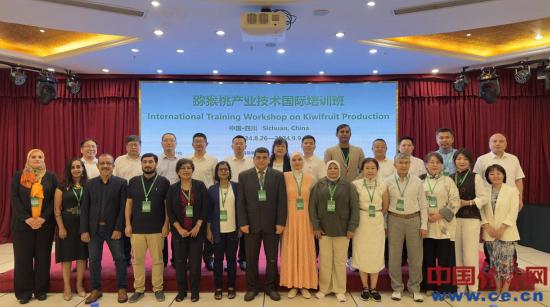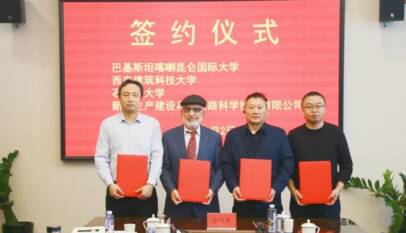Pakistan Eyes Global Kiwifruit Market With Chinese Collaboration
Agricultural experts from Pakistan have expressed optimism about the country’s potential to become a significant player in the global kiwifruit market, following the International Training Workshop on Kiwifruit Production in Sichuan, China. A memorandum of understanding (MoU) was signed between the Sichuan Provincial Academy of Natural Resource Sciences and the University of Swabi, marking the beginning of collaborative efforts in kiwifruit production. Experts highlighted Pakistan’s favorable climate and strategic location, which could provide a competitive edge in exporting kiwifruit to regions such as the Middle East, Central Asia, and Europe. The partnership under the Belt and Road Initiative (BRI) aims to introduce Chinese technology and expertise in kiwifruit cultivation, breeding, and pest control to Pakistan.
ISLAMABAD, Sep 23 (APP): Agricultural experts have expressed optimism that Pakistan could become a significant player in the global kiwifruit market by collaborating with China, following an assessment of its potential during the recently concluded International Training Workshop on Kiwifruit Production in Sichuan.
A memorandum of understanding was reached between Sichuan Provincial Academy of Natural Resource Sciences and the University of Swabi, marking a promising beginning of Sino-Pak kiwifruit cooperation in a more in-depth form.
“Pakistan’s kiwi industry has immense potential for growth and development. With its favorable climate, rich soil and abundant water resources, Pakistan can become a significant player in the global kiwifruit market,” Dr. Ruidar Ali Shah from the University of Swabi told China Economic Net.
He further said Pakistan’s strategic location allows for easy access to markets in the Middle East, Central Asia and Europe, providing a competitive edge. He hoped that the future of Pakistan’s kiwi industry and its potential to contribute significantly to the country’s economy.
Dr. Muhammad Akhlaq from PMAS-Arid Agriculture University Rawalpindi said Pakistan’s climate, especially in its northern and hilly regions, is suitable for growing kiwifruit, which requires moderate temperatures and adequate rainfall. The growing demand for kiwifruit in both local and international markets, coupled with Pakistan’s large agricultural workforce, presents a significant opportunity for the country to develop a profitable kiwifruit industry.
At the two-week workshop, agricultural experts from overseas countries including Pakistan, Egypt, Nepal and Mongolia acquired China’s expertise in kiwifruit germ-plasma resource collection and protection, new variety breeding, cultivation management, pest control, post-harvest storage and marketing.
“China kiwifruit technology and industry are highly advanced and impressive. The country’s experience in kiwifruit production particularly in Sichuan province is remarkable. China’s success in kiwifruit cultivation, harvesting and marketing is attributed to its robust research and development, efficient irrigation systems and effective supply chain management,” Dr. Ruidar Ali Shah said.
Additionally, Dr. Muhammad Akhlaq said techniques such as controlled atmosphere storage, mechanized harvesting, and disease-resistant varieties are some of the advancements contributing to China’s dominance in the market.
According to the Pakistani experts, Chinese technologies and practices could be applicable to Pakistan with right adaptations based on Pakistan’s unique climate, soil and market conditions. More specifically, China’s expertise in developing resilient and climate-tolerant kiwifruit varieties may help Pakistan overcome challenges related to climate variability, water scarcity, and pest control.
The Belt and Road Initiative (BRI) offers a platform for both countries to collaborate on agricultural projects, including kiwifruit cultivation. Pakistan could also benefit from Chinese markets by exporting kiwifruit once production scales up,
Dr. Muhammad Akhlaq said.
Under the newly signed MoU between Sichuan Provincial Academy of Natural Resource Sciences and the University of Swabi, the two parties will work collaboratively on capacity building, educational training, organizing workshops and conferences, exchange of faculty members, initiating and launching research projects, submission of projects to donor organization, etc in the kiwifruit industrial development and other natural resource conservation and utilization.
Pakistani companies showcased excellence at Intertextile Shanghai Expo 2025
The Intertextile Shanghai Apparel Fabrics and Yarn Expo Spring 2025 concluded today at the…













